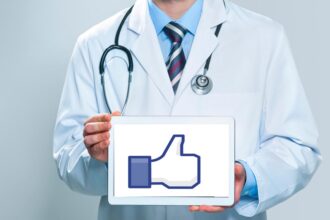

Big Data here, Big Data there… but what does it really mean?
And to what extend should you, as a small practice or an independent physician, feel concerned about it?
Here is the third and last post about the Big data hot topic.
This week, we will see that the important is not how big is your data but how you use it.
The “Big data” tree is hiding the “data management” forest
What really underlies the “Big data” topic and what’s really interesting and worth attention, especially for small practices and independent physicians, is not the “big” in “Big data”, but the “data” part. The first and main objective of data management should be to improve the patients’ health and to ease health professionals work (sounds obvious, but sometimes the obvious needs to be explicitly stated…). Information management is (and always was) a critical issue for the medical practice, independently from the size of the practice. So what really matters is how to make the best use of this information and “translate data into actionable results [to] have a direct impact on care management and treatment coordination”. That’s why some authors took advantage of the Big data big fuzz to point out the fact that maybe it would be better to start focusing on small data before diving in the data oceans promised by the industry.
What’s small data?
It can be shortly described through the following axiom: you don’t need more data, you only need to use more efficiently the ones you already have. Or, to use the snowball metaphor, it would mean that instead of throwing a snowball from the top of the mountain without really knowing how to control its exponential growth, why not focus on the snow you already have and figure out what you can do with it? Suggestion 1, suggestion 2 (just to get an objective yet illustrative point of view).
How to go “small data”?
The first thing to do would certainly to go digital. There is still a lot of reluctance to use digital tools to collect and organize the patients’ information. But as the EHR/EMR supply grew and got more diverse, it seems that the problem is not so much to use or not to use these tools, but to find the right one that would adapt the physicians’ practice, workflow and habits. Through flexible, software-as-a-service-based solutions, for example.
So, more than going digital, the first step would be to find a flexible, customizable tool to match the best the specificities of your practice.
But going digital is not enough. There are also some good practices to learn. The most interesting one is called “Focus on Transitions of Care”, and states that “success […] is related to “high touch” approaches in which more time is spent in face-to-face time with patients, and when these interventions occur at moments that are “just right” for the patients, usually prior to or during transitions.”. “[I]t may require the intuition, clinical judgement, and good common sense of providers to act when they are needed”. It is worth mentioning because it does what the whole big data forgets to do. It puts health care professionals where they should be: at the center of the process, working for their patients’ direct interest. And it contradict the usual “EHR/EMR interfere in a bad way in the doctor/patient relationship” critic. With the right tool, at the right moment, and done by the right person, collecting information can really help to reach the above mentioned first and main objective.
The nature of the data to be collected is also important. Partnering with payers is a way to “aggregate specific kinds of information on specific populations of patients” through information sources less expensive than what offer some EHR solutions. But without forgetting that “the important data is what’s used for clinical purposes, not what’s used for billing”.
Then, you can also get inspired by the role of analytics in Big data and apply the processes to a smaller set of data. Indeed, “small data healthcare business analytics [are] a means to improve patient outcomes and hospital bottom lines” that can help to ”mine electronic health records to determine preventative care gaps affecting their patients“, for example.
Big conclusion
Huge amounts of data flowing from everywhere to automated intelligent gateways are supposedly the next big thing that will turn future healthcare into a more efficient and safer healthcare. As an independent physician or a small practice, you are having serious doubts about it. But when you look Big data right in the eyes, you can see that beyond the industry icy appetite and the spooky experts’ jargon, there is a nice cuddly creature that wants you good and only asks to be domesticated.
Photo credit: Zimbio








